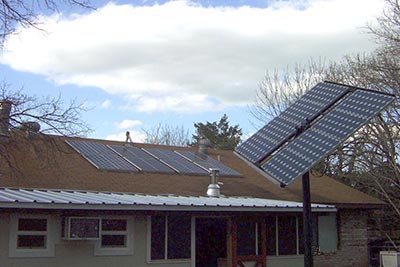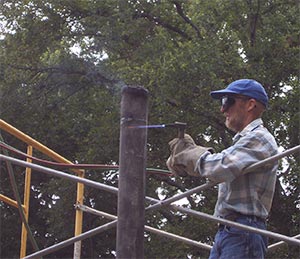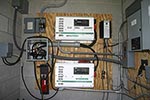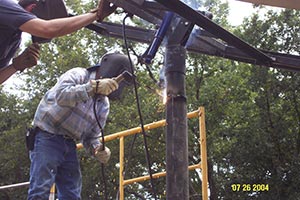
|
True Performance Design and Test Protocol Custom Load Calcs and System Design House Performance Testing and Remediation Carbon Monoxide and
Combustion Air Quality Air Conditioning 3rd Party Training for Quality Contractors Generators & Alternative
|
Generators & Alternative Energy SystemsIn this day of rising energy prices and concern over environmental issues, there is an increasing demand for alternative and renewable energy sources. Hardly a week goes by that we don't get a question about installing solar or wind power for someone. When we get that question, we have to start asking other questions of the potential client to resolve some things with them first. Stop and Think! The most important thing you need to deal with is how much energy you are wasting. There are so many ways that a home wastes energy. Alternative energy (AE) or renewable energy (RE) is so much more expensive to generate that you can't afford to waste it. Allow me to quote something that sheds light on this issue very well:
Notice that the authors state that $1.00 of waste is equal to $3.00-$5.00 worth of energy produced by the AE or RE system. That's a pretty heavy weight to overcome. In the light of this, how can we proceed
to get ready for an AE system? The first answer is to
learn to conserve and the second is to make your home
as energy efficient as possible. That is why you need
an energy consultant. To accomplish the goals of cutting energy waste to a minimum, Tradewinds offers all the varied levels of energy consulting to help you devise a cost effective plan. Read our pages about testing and consulting. If you tame the energy wasters in your home, you can then think about installing AE or RE systems. As energy consultants, its our job to help you see the energy-wasting circumstances that are hidden from your sight and to help you map out your plan of attack. Now, let's look at what RE or AE systems areThe definition of renewable energy, as stated by the Texas Renewable Energy Industries Association,(TREIA), and subsequently adopted by the Texas Legislature is:
"Alternative energy", as defined by Webster’s New Millennium Dictionary of English 2009, "is energy derived from sources that do not use up natural resources or harm the environment; also called [renewable energy]." So the terms are often used interchangeably to mean the same thing. In our minds, alternative energy is a broader term and can include some forms of energy that a RE purist would not consider renewable energy. This would include recycled cooking oil and other things that re-use already manufactured fuels. Common AE systems
On top of the various systems, you have to consider the application the systems will be used for. Applications can consist of these uses and any combination:
There is now a huge selection of equipment and skills available to help you accomplish your RE project. Tradewinds can help you plan your project in a manner that will prevent you from wasting time and money and perhaps from getting on a track that will not lead to a productive system. Do you need to lay out the path of the sun?If you need to plan a solar installation or even lay out a garden or any place where it is vital to know the amount of sunshine you will receive during the year, there is one tool that is very useful to provide the answers. That is the Sun Seeker App.
Do
you need a backup genset or even a stand-alone Tradewinds can help you design alternative energy systems such as fuel powered generators and others. Generator Sales, Service and Installation now offered. GENERAC / KOHLER Please contact our office for further information.
We are able to consult with you about your project. Remember, the first step is to tame the energy waste in your life. After that, you can install systems and enjoy the savings and the peace afforded from providing your own power.
The installation shown below is our office power
station.
We have designed power systems for homes and facilities both in suburban and rural settings. From supplemental power to fully off the grid.
Cutting pole to length
Power Inverters
Welding attachments to pole
Installing panels to tracker |
|||
|
|
|



